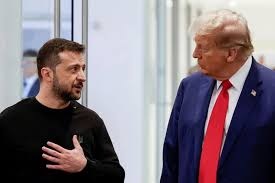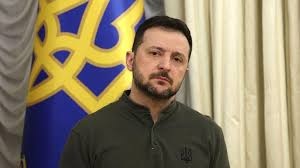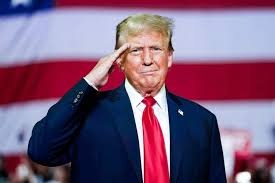KYIV/WASHINGTON, October 20, 2025 – In a move that has reverberated across diplomatic capitals, Ukrainian President Volodymyr Zelensky has delivered an unequivocal rejection of any proposal to cede national territory in exchange for peace, drawing a sharp line in the sand against mounting pressure from international figures, including President Donald Trump. His uncompromising stance, articulated following a high-stakes meeting in Washington, underscores Kyiv’s belief that only sustained, forceful pressure can bring an end to Russia’s military aggression, and that any concession would merely embolden further hostile action from Moscow.

The core of the recent diplomatic friction stems from reports detailing a tense encounter between President Zelensky and Mr. Trump at the White House on October 17. According to sources cited by the Financial Times, Mr. Trump, a likely contender for the upcoming U.S. presidential election, proposed a potential peace framework that would necessitate Ukraine formally surrendering the Donbas region to Russian control. The idea was reportedly met with an immediate and firm rebuff from the Ukrainian leader, who remains resolute in his commitment to the nation’s territorial integrity.
Speaking to the press on October 19, President Zelensky underscored the central pillar of his government’s strategy: “The world has borne witness: Russia only retreats when it is confronted with pressure. Peace through strength is not merely an aspiration; it is a demonstrable reality.” He continued with a forceful declaration: “Ukraine will not reward terrorists with its own sovereign land. We expect our international partners to not only understand this conviction but to actively share it.” This statement serves as a clear challenge to the prevailing notion of “realpolitik” that often suggests painful territorial compromise as the quickest route to de-escalation.
The candid exchange during the October 17 meeting, described by FT sources as fraught with tension, reportedly culminated in a stark warning from the former U.S. President. Mr. Trump allegedly cautioned that a refusal to yield territory could spell “the end for Kyiv,” an unnerving pronouncement that suggests a potential shift in U.S. geopolitical backing should he return to office. Despite this profound pressure, Zelensky’s resolve remained unshakeable. He reiterated his long-held belief that appeasement only accelerates aggression. The military campaign spearheaded by Moscow, he argued, cannot be curtailed by mere diplomatic platitudes or paper agreements; it requires a combination of robust military defense and crippling international sanctions.
“Peace can only be achieved when we are hard enough, tough enough,” the Ukrainian leader asserted, issuing a fervent plea for decisive action from key global blocs. He specifically called upon the United States, Europe, the G7, and the G20 to amplify their current strategies against the Kremlin, suggesting that the current level of commitment falls short of what is required to truly alter Russia’s strategic calculus.
Further elaborating on his view of the Russian threat, President Zelensky appeared on NBC’s Meet the Press program the same day. When pressed on whether Mr. Trump should adopt a more forceful stance toward Russian President Vladimir Putin, Zelensky’s response was direct and uncompromising: “Yes—and even more so.” He went on to make a striking comparison, positioning the long-term threat posed by Mr. Putin as “even greater than Hamas,” a statement designed to immediately recalibrate the West’s perception of global security priorities and the scale of the challenge emanating from Moscow.

A critical point of contention also emerged regarding the future architecture of peace talks. President Zelensky firmly stipulated that Kyiv must be an active participant in any and all forthcoming negotiations between Mr. Trump and Mr. Putin, discussions that are reportedly being tentatively planned for Budapest. “If one wishes to achieve a just and durable peace, both sides of the conflict must be present at the table,” he insisted. “There can be no agreement about Ukraine that does not fundamentally and centrally include Ukraine.” This assertion aims to pre-empt any backroom dealings or unilateral decisions made by major powers that could undermine Ukraine’s sovereignty and long-term security.
Beyond the political and territorial sparring, the October 17 meeting also had tangible security implications. The summit reportedly concluded without any firm commitment from the U.S. side to supply Ukraine with Tomahawk long-range cruise missiles. This class of weapon is deemed vital by Kyiv for its ability to strike strategic military targets deep within the Russian rear, thus degrading Moscow’s logistical and command capabilities.
The lack of a positive outcome on this crucial military aid was later addressed by Mr. Trump in an interview with Fox News. His explanation for withholding further weapons assistance centered on U.S. defense needs: “America needs weapons for itself, too,” he stated, suggesting that domestic military stockpiles must be prioritized, thereby casting doubt on the sustainability of Washington’s current level of support for the Ukrainian war effort.

Zelensky’s rejection of the land-for-peace formula is not simply a diplomatic maneuver; it is a reflection of a deeply held national conviction, one born of years of conflict. His administration operates on the principle that territorial concession under duress establishes a dangerous precedent, rewarding aggression and guaranteeing future conflict. By refusing to capitulate, Kyiv is strategically attempting to shift the international narrative from one of compromise to one of unwavering principle, forcing its allies to choose between short-term de-escalation and long-term security built on the foundation of international law and territorial integrity. The coming months will test the resolve of President Zelensky and the cohesion of the international alliance as the pressure to find an end to the brutal conflict continues to mount.





